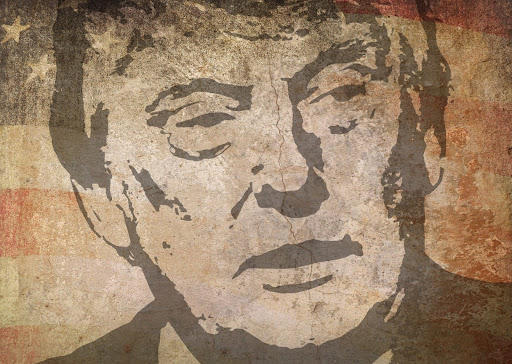
The bipartisan infrastructure deal was first announced by Joe Biden and a group of senators. The Senate has approved the roughly $1.2 trillion package. The infrastructure deal is a direct response to the outcry from the left over building the new pipeline, which has since been halted. The money from the pipeline only accounts for around half of the budget for the infrastructure deal. The deal, which passed by a vote of 69-30, is supposed to benefit: Public transit, by including money for mass transit, passenger and freight rail, airports, ports and waterways. Roads and bridges, with funding to repair and rebuild roads and bridges. The goal is to make roads safer for motorists, cyclists and even pedestrians. Electric vehicles will be included by constructing a network of electric vehicle chargers also electrifying school and transit buses. Water, sewer, and power systems are supposed to get funding to replace the nation’s lead pipe service lines and improve its power grid. Broadband will be funded with $65 billion to try to ensure all Americans have access to wifi. The infrastructure deal is being followed by a budget reconciliation bill. 50 Democrats and 19 Republicans voted for the infrastructure deal. 30 Republicans voted no to the infrastructure deal, which Trump is calling the “start of the Green New Deal.”

Which Republicans Voted for the Infrastructure Deal
A few of the Republican supporters are five senators who voted to convict Trump during his second impeachment. Two of the infrastructure deal supporters have plans to retire soon. Five senators who voted for the deal come from states Trump won by more than 30 points during his election. Some Republicans are seeing voting for the infrastructure deal as a slight against Trump and Republican Party. The Republican senators who voted for the infrastructure deal are:
Mitch McConnell, of Kentucky
Roy Blunt, of Missouri
Shelley Moore Capito, of West Virginia
Bill Cassidy, of Louisiana
Susan Collins, of Maine
Deb Fischer, of Nebraska
Lindsey Graham, of South Carolina
Chuck Grassley, of Iowa
Rob Portman, of Ohio
Mitt Romney, of Utah
Roger Wicker, of Mississippi
Dan Sullivan and Lisa Murkowski, of Alaska
Richard Burr and Thom Tillis, of North Carolina
Mike Crapo and Jim Risch, of Idaho
Kevin Cramer and John Hoven, of North Dakota.
“There’s a joke around town that infrastructure week has come and gone so many times that people are a little cynical when we talk about it,” Rob Portman, one of the retiring senators, said ahead of the vote. “Well today is infrastructure day, we’re actually going to see what we’ve been talking about which is the Senate, on a bipartisan basis, saying you know what, it is time to fix our roads and bridges, we can do so in a responsible way, not by raising taxes on the American people, but by making important investments in long-term capital assets that will last for years.”

What Trump Thinks of the Infrastructure Deal.
Former President Donald Trump has tried very hard to convince the Republican party to not pass the infrastructure deal. Trump continues to maintain his place as a fixture in the Republican party. “It is a loser for the USA, a terrible deal, and makes the Republicans look weak, foolish, and dumb,” he said in a statement last month. “It shouldn’t be done. It sets an easy glidepath for Dems to then get beyond what anyone thought was possible in future legislation. … Don’t do it Republicans — Patriots will never forget! If this deal happens, lots of primaries will be coming your way!”
Trump’s White House tried to have “infrastructure week” many times while he was in office. His attempts were always blocked by various things, mostly democrats. Trump said in a statement, “This is not an infrastructure bill, this is the beginning of the Green New Deal. The bill I proposed, which Mitch McConnell couldn’t do anything with, was pure infrastructure. I want what is best for America, not what’s best for the Communist Democrat Party. This will be a big victory for the Democrats and will be used against Republicans in the upcoming elections. Schumer is using the threat of ‘we can do it the hard way or do it the easy way’ and keeping people in town. McConnell never did that on a real infrastructure bill. Hopefully the House will be much stronger than the Senate.” Trump concluded his statement by saying “Congratulations to Senator Bill Hagerty in remaining true to ‘AMERICA FIRST!’”
What Other Republicans Think of the Infrastructure Deal
Many conservative Republicans were even more opposed after the Congressional Budget Office projected the infrastructure deal could add $256 billion to the federal deficit over the next ten years. Bill Hagerty insists everyone needs to take more time to consider the infrastructure bill’s contents. John Kennedy says he was likely to vote “yes” until he actually read the whole infrastructure deal, which is roughly 2,700 pages. “I don’t know why it passed with 60-plus votes,” Kennedy told Laura Ingraham in an interview, “I don’t know, day drinking, maybe?” Kennedy made statement saying, “I realized pretty quickly that if you look up ‘stupid stuff’ in the dictionary, there’s a picture of this bill,” he said. “They told us it was a real infrastructure bill. It’s not; only 23 percent of the bill is real infrastructure, the rest is Green New Deal and welfare. They told us the bill was paid for; it isn’t, we’re gonna have to borrow maybe up to $400 billion to pay for it. They told us there were no tax increases. There are; my state’s gonna have to pay $1.3 billion in new taxes on our petrochemical industry.” Kennedy went on to say, “the Democrats were really wary of this bill and that if we passed this bill, it would make it harder for them to pass their $5 trillion tax and spending binge reconciliation bill. Well, if that’s true, how come every Democrat voted for this infrastructure bill? And finally, they told us that it’s not going to add to inflation, but it will.” Nancy Pelosi says the House will be holding the infrastructure bill until senate democrats pass a budget reconciliation bill.

Now that the Senate has voted on the infrastructure deal, the House would have to approve it. Nancy Pelosi claims the Infrastructure deal will be held in the house until the budget reconciliation bill comes through as well; the budget reconciliation bill seems to be mostly welfare and attempts at free education. Then the bills would go to President Biden’s desk, where he would then approve one or both. The House is currently on recess till the third week of September. In a statement following the vote, Nancy Pelosi said, “The House will continue to work with the Senate to ensure that our priorities For The People are included in the final infrastructure and reconciliation packages, in a way that is resilient and will Build Back Better.” Both bills will spend money we don’t have as a country and put us in even more debt because of it. The public claim is the bills will make life better for Americans, giving them more money and jobs in the long run. We may have more money and jobs, but our taxes and cost of living will shoot up to pay for the difference. If that is the case won’t we be in the same boat we are now? Will pumping in money we don’t have fix our economy, or break it even more?
Written by: Erinn Malloy

